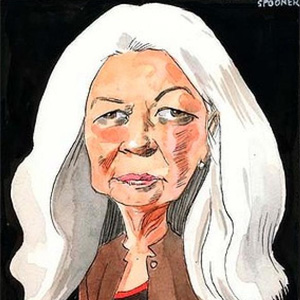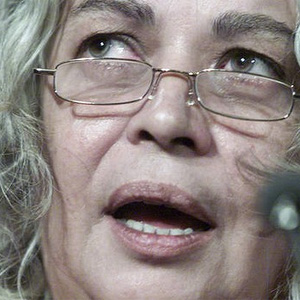Mining does not offer the answer to indigenous woes ...
... Marcia Langton's conservative views dominate the media but her claims lack evidence
Boris Frankel The Age March 12, 2013
'Unfortunately in contemporary Australia the conservative views of Marcia Langton and Noel Pearson dominate the media. Tragically, they blindly ignore that market strategies have overwhelmingly failed to eradicate poverty and marginalisation for most indigenous peoples internationally', writes Professor Boris Frankel, an honorary fellow in the Melbourne school of land and environment, University of Melbourne. 'If Langton and Pearson's neo-liberal ideology continues in Australia, we will see even more indigenous and non-indigenous people homeless, unemployed and on welfare in the coming decade'.
It is very disappointing that Russell Skelton's defence of Marcia Langton and her 2012 ABC Boyer lectures on this page last week was based on crude name-calling and misinformation. According to Skelton, "Marcia Langton's contentious Boyer lectures, described as the most shameful episode in ABC history, appear to have infuriated the unreconstructed few standing to the left of Fidel Castro."
Firstly, in my piece Opportunity Lost for Arena Magazine last month, I did not describe her lectures as "the most shameful episode", but said it is possible they "will rank as a particularly shameful episode in ABC history".
I also argued that if right-wing shock jocks and commentators had articulated Langton's view that environmentalists are the new racists who want to keep Aborigines uneducated and living in poverty there would have been widespread outrage and condemnation.
Instead, for five weeks, Marcia Langton provided no concrete evidence for her claims. Audiences were subjected to her unfounded charges and yet the ABC completely ignored its commitment to "balance" by not inviting environmentalists or other indigenous people to comment on other ABC programs. Shame ABC.
Skelton's allusion to critics of Langton as part of the "unreconstructed few standing to the left of Fidel Castro" could almost be taken as a compliment. I have always been a strong critic of communist dictatorships that violate human rights.
As to being "unreconstructed", Skelton might be surprised to know there is widespread criticism of Langton within indigenous communities.
He might also consider that millions of Australians are upset and frightened by the mindless "unreconstructed" practices of mining companies that pursue massive developments at the expense of precious environmental habitats and sacred sites.
Above all, it is mining companies and governments (not environmentalists) who need to come into the 21st century and ensure that the billion-dollar profits made by resources companies do not precipitate extreme climate change.
In hyperbolic fashion, Skelton also claims that the left was upset because Langton "betrayed her Trotskyite roots by stating not all miners were villainous exploiters of indigenous people". What is the source of this claim?
As to the issue of Langton's disclosure of research funding from mining companies, this is an issue that I did not raise but which was raised by people such as Andrew Crook at Crikey.
I have long known of Langton's association with Rio Tinto, Fortescue Metals and others. ABC disclosure of research funding would have alerted the unsuspecting audience of the Boyer lectures, but it would not have changed the anti-environmentalist content of Langton's lectures. Similarly, the disclosure by Skelton of Rio Tinto's assistance in no way altered his glowing account of Rio's activities.
While mining projects have delivered new jobs and business opportunities for some indigenous people, for the rare indigenous multimillionaire cited by Skelton, there are up to 100,000 people living in poverty. Langton and Skelton's rose-tinted view is seriously at odds with economic reality.
Regarding job prospects in mining, even if we were to ignore all environmental considerations, most people living in regional towns or very remote areas have no mines nearby waiting to be developed. Agribusiness and other land-based business opportunities are also scarce. The reality is market forces have not gone into many remote communities and regional areas because there is no profit to be made.
Regional Australia contains too many fragile, crisis-ridden communities. For decades non-indigenous youth have moved to the cities in search of work and lifestyle, so the likelihood of market forces eliminating poverty for Aborigines in hundreds of small communities is fanciful.
Even Langton partially recognises the limits of the current resources boom and the legacy of former mining towns - now ghost towns - across the continent.
Instead of abusive name-calling and accusations of "racism", there is a real debate to be had on future socio-economic strategies to improve indigenous living conditions. The key is whether the goal is to "close the gap" with non-indigenous people on all social indicators, or whether to give those in the remote communities the right to participate in framing viable socio-economic development options, combined with the retention of cultural practices.
Unfortunately in contemporary Australia the conservative views of Marcia Langton and Noel Pearson dominate the media. Tragically, they blindly ignore that market strategies have overwhelmingly failed to eradicate poverty and marginalisation for most indigenous peoples internationally.
If Langton and Pearson's neo-liberal ideology continues in Australia, we will see even more indigenous and non-indigenous people homeless, unemployed and on welfare in the coming decade.
 Professor Boris Frankel is honorary fellow in the Melbourne school of land and environment, University of Melbourne.
Professor Boris Frankel is honorary fellow in the Melbourne school of land and environment, University of Melbourne.
Disclosure wars: Skelton defends Langton (backed by Rio)
Guy Rundle Crikey 7 March 2013
The Age's Russell Skelton offers a bizarre and self-contradictory defence of Marcia Langton after Crikey revealed she failed to disclose links to Rio Tinto in her Boyer lecture series.
Days after The Age went tabloid, its reporting appears to have followed suit. Take the bizarre and self-contradictory defence of Marcia Langton by Russell Skelton. Responding to Crikey's story revealing Langton had not declared, in her ABC Boyer lectures, that mining giant Rio Tinto was funding one of her major political projects, and that big Rio was praised effusively in the Boyers, Skelton has responded:
"According to her critics, Langton's sins are many: She failed to declare in her lectures that mining companies helped fund her research into the politics of poverty and plenty in the Pilbara."
He then went on to catalogue the more thematic criticisms Boris Frankel (in Arena Magazine) and others mounted at Langton's broad criticism of the Left, Greens, etc. By Skelton's reckoning this failure to disclose financial interests in the lectures was of the same level as the accusations that:
" ... she betrayed her Trotskyite roots by stating not all miners were villainous exploiters of indigenous people ... Further, she had the temerity to take a hefty swipe at environmentalists ... "
They bloody aren't the same, and I know that because I read about the iniquity of undisclosed interests in, erm, The Age, which days before had splashed with a huge exclusive on Planning Minister Matthew Guy having undisclosed lunches with $10,000+ Lib donors with planning applications in process.
Langton's non-disclosure within the Boyers is not of that order, since she has made her links with Rio clear elsewhere. Skelton notes that "for years" there have been rumours about Langton receiving personal payments from Rio, but he discounted them because he "knew her". Nevertheless, in the tradition of I.F.Stone and Woodward and Bernstein, he felt some investigation was in order, 2012-style: " ... as an exercise I hit Google." Christ, there goes this year's Gold Walkley.
In doing so, Skelton establishes Langton has received extensive support from Rio for her research into Aboriginal poverty. Should she declare that in the actual text of the Boyers? Skelton seems to think so, as he demonstrates at the end of his article:
"Russell Skelton is a contributing editor of The Age. Rio Tinto assisted with his travel in the Pilbara."
So, in an article trying to defend Langton for not explicitly declaring an indirect financial interest, Skelton (and/or The Age) feels compelled to declare an indirect financial interest! With the same company as Langton is involved with!
That is an own goal of Ronaldo-esque proportions, for two reasons. Firstly, because it's just dog-bollocks dumb on the face of it. Secondly, because much of Skelton's article is devoted to praising Langton for refusing the "special treatment" hitherto given to black people on account of a history of oppression (that's why Langton now accuses critics of her policy proposals of "racism"). On the face of this article, it appears Skelton, embarrassingly undistanced from Langton - "If she had a second PhD, it would be in refusing to tolerate fools of any kind."* Gaaaaaaaaack. - has extended exactly that special treatment to Langton. And The Age has joined him in it.
*Connoiseurs of sycophancy may wish to compare this line with the great ad campaign by Dos Equis beers about "the most interesting man in the world": "His beard alone has experienced more than a lesser man's entire body." Stay thirsty, my friends.
 Guy Rundle is a writer at large for 'Crikey'
Guy Rundle is a writer at large for 'Crikey'



